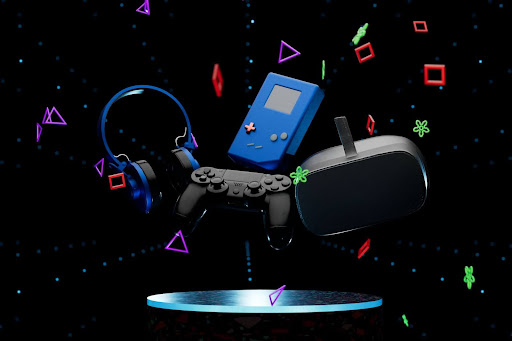
The human brain is an incredibly complex organ. It features 86 billion neurons and 600 trillion synapses. As a result, it is capable of creativity, emotion, and cognition. The brain's adaptability allows it to learn, solve problems, and process vast information. When used positively, gaming is an impressive way to look after mental health.
A 2019 survey indicates that nearly 80% of gamers say video games provide mental stimulation, relaxation, and stress relief. Apart from this, receiving a bonus, such as a https://www.slotozilla.com/ca/no-deposit-bonus/100-free-chip triggers the brain's reward systems, providing a sense of achievement and satisfaction in completing tasks. Of course, there can be positives and negatives to gaming. Let us discuss the impact of gaming on mental health below.
The Positive Impact of Gaming on Mental Health
Video games benefit the human brain in various ways. From physical results we can quantify to the less quantifiable ones, we are witnessing increasing attention to the possibility of gaming improving well-being. Moderate gaming has been reported to contribute to emotional stability, reduce emotional disturbance, and provide an outlet for letting off steam. Consequently, it is a means of relaxation, stress reduction, and the development of skill acquisition.
In a nutshell, gaming allows one to feel positive emotions like joy, happiness, and satisfaction. Not only this, but it promotes engagement and immersion in activities. Gaming nurtures relationships, which brings greater happiness, and the activities provide a sense of purpose and fulfillment. However, that is not all there is to gaming and how it impacts mental health.
Creativity and Problem-Solving Skill Development
Our brain adapts and reorganizes itself in response to stimuli and experiences. One such is playing video games. The activity stimulates neuroplasticity by engaging attention, memory, and decision-making. Over time, new neural pathways associated with these cognitive functions begin to develop, potentially enhancing an individual's overall cognitive ability.
Some games are like mini workouts - a way to exercise the brain. For instance:
-Minecraft's sandbox environment allows a player to unleash their creativity by building elaborate structures. Likewise, individuals face and overcome obstacles while navigating hostile environments.
-Tetris requires spatial reasoning and making quick decisions.
-XCM2 encourages a player to make tactical decisions in combat scenarios.
Playing games that require critical thinking, strategic decisions, and solving complex problems improves a gamer's creativity and problem-solving skills.
A Sense of Achievement
Many games activate the brain's reward systems and provide a feeling of achievement after reaching milestones or completing tasks. Apart from the gameplay, in-game mechanics like bonuses and rewards produce a similar effect. For example, achieving a task to win up to 100 free spins on Book of Dead at an online casino releases neurotransmitters like dopamine, providing motivation and pleasure. This satisfaction from meeting objectives contributes to an overall sense of well-being.
Social Interaction and Relationships
Although most people view gaming as an isolating activity, the reality is far from this perception. In today's gaming landscape, gamers play in groups, sometimes with people from different countries, cultures, and backgrounds. In the process, they chat and work together to achieve a goal. Meanwhile, immersive technologies like virtual and augmented realities make the experience more enjoyable.
Online multiplayer video games like Fortnite, Minecraft, and Counter-Strike: Global Offensive allow teenagers to connect with real-life friends. This feature comes in handy for reducing loneliness, depression, and suicidal intentions. Of course, we cannot replace face-to-face interactions with gaming. Nonetheless, online gaming fosters a sense of belonging to a community.
Coping Mechanism for Stress and Anxiety
Many people, especially teenagers of Gen Z struggle with depression. Peer pressure, academic stress, and various external factors cause anxiety, and these individuals struggle to feel joy or pleasure. A game on any website provides a temporary escape from the isolated feeling through interaction with others. Moderate gaming encourages a gamer to stay focused and immerse themselves in the moment. As a result, they effectively ignore other racing thoughts and get a much-needed calmness.
Apart from teenagers, individuals suffering from trauma use games as a mechanism for distraction. For instance, mental disorders like depression, post-traumatic stress disorder (PTSD), and attention deficit hyperactivity disorder (ADHD). Besides providing distraction, video games build emotional resilience since players learn to cope with failure and success.
The Role of Responsible Gaming
All the benefits highlighted above are associated with moderate gaming. Video gaming, just like other forms of entertainment, has its negative side. The most profound con is addiction or Internet gaming disorder (IDG). This occurs when gaming becomes problematic and gets in the way of your everyday activities. Apart from addiction, other negative mental health outcomes include increased aggression, disrupted sleep, unhealthy escapism, societal anxiety, and depression. As a result, the best way to enjoy video gaming is to do so in moderation or adopting a balanced approach. Some ways to do so include:
-Dedicate a period to gaming and stick to it.
-Join other sports activities or develop hobbies that don't involve technology.
-Don't substitute online friends for real-world interaction with friends and family.
-Check your mood before and after gaming to know if it makes you feel better or worse.
-Talk to someone if you feel your gaming is becoming too much.
Conclusion
At the end of the day, what determines its effects on mental health is the gamer's activity. Moderate gaming provides a temporary escape from real-life stressors. Plus, an opportunity to unwind. Meanwhile, games that require strategic planning, critical thinking, and problem-solving improve cognitive functions.
Multiplayer games allow individuals to connect and build relationships, especially for people who struggle to socialize in the real world. It reduces the feeling of loneliness and isolation. Lastly, the reward system provides a sense of accomplishment. That said, these benefits all hinge on moderate gaming. Track your activities and watch out for the signs of IGD. Most importantly, talk to someone if you're struggling.





Update